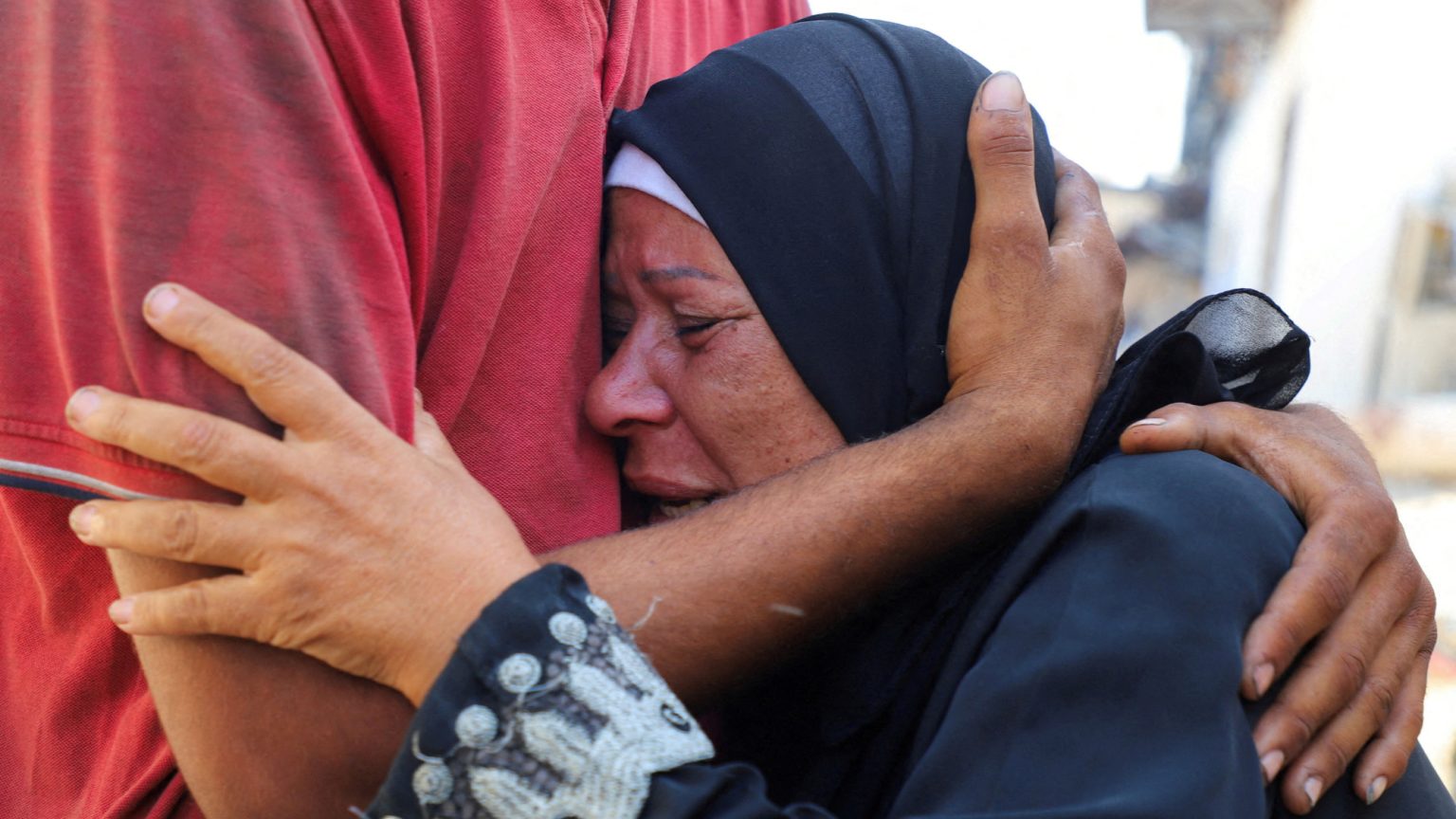The echoing silence is a new, devastating reality for many Palestinian children in Gaza, a consequence of the relentless bombardment and ongoing conflict. Two young brothers, Elias and Ismail Abu al-Jibeen, lie side-by-side at al-Wafa medical rehabilitation hospital, their world irrevocably altered. Their story, and the stories of others like them, highlights the hidden epidemic of hearing loss in Gaza, a tragic byproduct of war that demands urgent attention.
The Silent Scars of Conflict: Elias and Ismail’s Story
Aya Abu Auda watches over her sons, Elias, 5, and Ismail, 8, speaking softly, hoping for a flicker of recognition, a response that doesn’t come. On August 31st, their displacement camp in Gaza City’s Tel al-Hawa neighborhood was struck by Israeli bombs. The attack stole more than just their sense of security; it robbed them of their hearing.
Elias is now completely deaf, the blast severing his connection to the world of sound. Ismail suffers from severe hearing impairment, a partial theft of a sense most take for granted. “I thought my children and I had survived the worst,” their mother shared with Middle East Eye, “I didn’t know the pain would follow us even after displacement.”
The road to understanding the full extent of their injuries has been harrowing. Ismail initially lost an eye and suffered paralysis affecting an arm and a leg. It wasn’t until weeks after the attack that his mother realized he no longer responded to her voice. Testing revealed a devastating 50% hearing loss in his right ear and 71% in his left.
Elias’ journey has been even more fraught. He remained in a coma for eighteen days. When he finally awoke, it wasn’t to a world of familiar sounds and sights, but to a bleak landscape of sensory deprivation. An accumulation of pus around his brain necessitated surgery, which restored limited awareness. He now experiences paralysis on one side, impaired vision and speech, and complete deafness in one ear. The hope for regaining hearing in his remaining ear vanishes with each passing day, hindered by the lack of specialized treatment within Gaza due to the ongoing blockade.
A Healthcare System Crumbling Under Blockade & Bombardment
The plight of Elias and Ismail is not isolated. Even a recent ceasefire hasn’t brought respite to Gaza’s shattered healthcare system. Israel’s blockade continues to strangle the flow of essential medical supplies. According to the Palestinian health ministry, only around 50% of hospitals are even partially functional, facing chronic shortages of medicines, equipment, and the heartbreaking unavailability of 229 crucial drugs. Finding even basic audiological care in Gaza is becoming increasingly impossible.
The struggles extend beyond children. Sanaa Bahr, a 40-year-old mother, also suffers from hearing loss after being repeatedly exposed to Israeli airstrikes and the detonation of explosive-laden vehicles during displacement. She recounts being near al-Quds hospital when the street was “carpet-bombed,” describing a searing pain and the sensation of sound tearing through her ears.
Repeated exposure compounded her injury. After returning to the area, a further explosion, from what are locally called “booby-trapped robots” (decommissioned armored personnel carriers packed with explosives and remotely detonated by Israeli forces), left her with agonizing pain, relentless tinnitus, and profound psychological trauma. “My daughters talk to me, and I cannot hear them. They must sit close and raise their voices,” she laments.
The Scale of Auditory Damage: Alarming Statistics
Yusra Basil, an audiology specialist at the health ministry, paints a grim picture, confirming a “massive auditory damage” across the Gaza population. “These blasts destroy neural cells and the auditory nerve in many cases,” she explains, detailing how explosions rupture eardrums and damage the delicate bones of the middle ear, resulting in partial or total hearing loss often accompanied by debilitating tinnitus.
Her estimates are startling: four out of every ten injuries sustained during the two years of conflict involve some form of hearing impairment. Considering that Israel has killed around 70,000 Palestinians and wounded over 170,000, the sheer number affected is deeply concerning.
A recent field survey conducted by Atfaluna Society for Deaf Children (covering the period of Israel’s war from 2023 to 2025) revealed a shocking 35,000 children and adults have experienced temporary, partial, or permanent hearing loss due to the relentless explosions. This represents a threefold increase compared to pre-war levels.
A Looming Crisis and Urgent Need for Intervention
“Without urgent treatment, many cases of partial or temporary hearing loss may become permanent,” warns Fadi Abed, director of Atfaluna Society. The overcrowding of displacement shelters coupled with poor nutrition, widespread infections, and the lack of basic healthcare exacerbate the problem, making children particularly vulnerable.
Infants and toddlers under two are at the highest risk, as hearing is crucial for their speech and language development. The loss of this ability creates lifelong barriers. Moreover, Israel’s destruction of institutions serving people with hearing disabilities has deepened the crisis, leaving 83% of disabled individuals without access to vital mobility, hearing, and psychosocial support.
Atfaluna itself was destroyed, and securing essential supplies – cochlear implants, hearing aids, specialized batteries, and rehabilitation devices – is exceptionally difficult. “Israel blocks almost everything, allowing in only minimal quantities,” Abed explains. The silent suffering of Gaza’s population is a stark indictment of the ongoing conflict and the devastating consequences of the blockade, demanding immediate and sustained international attention to address the widening hearing loss crisis in Gaza and provide much-needed care and rehabilitation.
